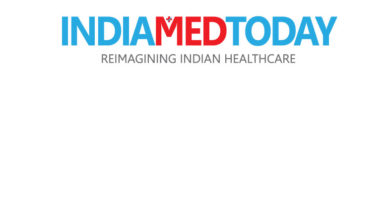
Proton therapy experts share their knowledge and expertise at the event
Apollo Proton Cancer Centre (APCC), the first Proton Therapy Centre in South Asia and The Middle East, recently conducted its 2nd Apollo Annual Proton Practicum. Over 700 participants including radiation oncologists and medical physicists from across the globe participated in the 3-day intensive clinical and academic event.
The Practicum event witnessed leading experts from across the globe share their knowledge and expertise in proton therapy with practical demonstrations thus showcasing the strength and versatility of proton therapy technology for effective management of various types of cancers. World-renowned radiation oncologists and medical physicists from six continents deliberated and engaged with all the participants from the globe. During the event, Professor Eugen Hug, an internationally acclaimed radiation oncologist and Medical Director of Med Austron Ion therapy centre, Vienna, Austria, inaugurated ‘Dr Prathap C Reddy Proton Oration session.
During the programme, APCC’s team of radiation oncologists and medical physicists also shared their experiences of treating various cancers using the latest pencil beam scanning intensity-modulated proton therapy (IMPT).
Dr Prathap C Reddy, Chairman, Apollo Hospitals said, “More than 25 years ago, we noted the growing prevalence of cancer in India, the lack of Oncology centres in the country and this was the genesis of Apollo embarking on advanced cancer care. From the very beginning, we brought in the most advanced technologies in cancer care and even South Asia and the Middle East’s first Proton Therapy at Apollo Proton Cancer Centre, reiterating our commitment to investing in the best available care for our patients. I am pleased that all leading experts on proton therapy from across the globe have come together at Apollo Proton Cancer Centre (APCC) and are collaborating to best utilise this novel technology. It is a matter of pride that the top specialists are working with us to ensure we all can deliver the best of care to our patients. This will further strengthen our resolve to keep raising the bar in oncology.”
Preetha Reddy, Vice Chairperson, Apollo Hospitals said, “It was just about 3 years ago, that the very first Proton Therapy in South Asia and The Middle East was unveiled at the Apollo Proton Cancer Centre (APCC) in Chennai. It marked a definitive step ahead by making the world’s most advanced radiation therapy much more accessible, benefitting a population of over 3.5 billion people. Now, once again raising the bar, APCC has become the first dedicated cancer hospital in India to be accredited by JCI, the gold standard for Quality. I am so thankful to all the leading global experts who have graciously accepted our invitation to join us and share their invaluable expertise with us. APCC has been providing cancer care with outcomes at par with leading international centres. We must keep collaborating and working together with a single resolve to give our patients the best in cancer care with love and empathy.”
“Increasing accessibility for our patients to this novel technology and also sensitizing our fellow colleagues in the medical fraternity regarding the benefits of proton therapy has been one of our major focuses for conducting these first of its kind proton practicum in this part of the world, said Dr Srinivas Chilukuri, organising secretary of the 2nd Apollo Annual Proton Practicum.
“Given the leadership, Apollo has demonstrated all through these years in bringing the best technologies in healthcare and making it accessible to the Indian and global population, APCC is continuing the stride and providing this novel technology to millions of deserving patients in the region. The practicum is a testament to our efforts to also contribute to the scientific community and it is going to be an annual affair every year,” said Dr Rakesh Jalali, Medical Director APCC and course director of the practicum.

